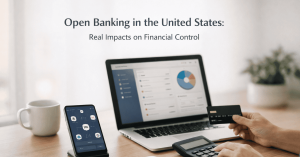The financial industry in the United States has experienced a significant transformation over the past decade, fueled by the rapid growth of financial technology companies, commonly known as fintechs. These innovative firms have revolutionized the way consumers and businesses access credit, offering solutions that are more personalized, efficient, and accessible than traditional methods. Leveraging advanced technology, data analytics, and user-centric design, fintechs have streamlined processes that were once cumbersome, enabling faster approvals and more tailored financial products.
By addressing barriers such as lengthy credit assessments and limited access for underserved communities, these companies are fostering greater financial inclusion. Moreover, fintechs are not just complementing traditional banking but also challenging its conventions, prompting legacy institutions to rethink their strategies. This ongoing evolution is reshaping the financial landscape, creating new opportunities for individuals and small businesses alike, and redefining the way society interacts with credit and banking services.
The rise of fintechs: reshaping the credit landscape

Fintech companies are utilizing advanced technologies, including artificial intelligence (AI) and machine learning, to revolutionize the evaluation of creditworthiness, offering capabilities that traditional banks often lack. Unlike conventional lenders that depend heavily on rigid credit scores, fintechs take a broader and more flexible approach by integrating alternative data sources.
These include rental payment histories, utility bills, and even behavioral insights from social media activity. This innovative and holistic strategy allows fintechs to paint a more comprehensive picture of an individual’s financial habits. As a result, they can extend credit access to those who may have limited or no traditional credit history.
By automating credit assessments, fintechs have dramatically accelerated the loan approval process. Consumers can now receive credit decisions within minutes, a stark contrast to the days or even weeks required by traditional banks. This enhanced speed and accuracy minimize the uncertainty and stress often associated with credit applications.
Additionally, fintech platforms are accessible through user-friendly online portals or mobile apps, allowing individuals to apply for loans at their convenience, anytime and from anywhere. This level of accessibility is especially beneficial for rural communities and underserved populations who may lack proximity to physical bank branches, bridging gaps in financial inclusion and access.
The democratization of credit has empowered individuals to secure funding for education, healthcare, or entrepreneurship without the barriers of traditional systems. Fintech innovations ensure that credit is not only accessible but also fair and inclusive.
New financial products tailored to individual needs
Fintechs have transformed the design and delivery of credit products by prioritizing customization and flexibility to meet diverse financial needs. Unlike the standardized, one-size-fits-all solutions provided by traditional financial institutions, fintech lenders develop tailored products that address unique circumstances. A prime example is the availability of microloans on many fintech platforms.
These small-dollar credit options are specifically designed to address short-term financial requirements, making them an ideal solution for individuals seeking immediate cash without committing to long-term debt obligations. By offering such specialized options, fintechs empower consumers with greater control over their financial choices and needs.
Peer-to-peer (P2P) lending platforms are another game-changer. These platforms connect borrowers directly with individual or institutional investors, bypassing the need for a traditional bank. P2P lending often provides better interest rates for borrowers while offering attractive returns for investors. Similarly, subscription-based lending models are emerging, where users pay a fixed fee for ongoing access to credit rather than accruing interest.
Moreover, fintechs are promoting financial literacy by incorporating educational tools into their platforms. These resources help users understand the terms of their credit agreements, manage their repayments effectively, and improve their overall financial health. Such initiatives ensure that credit products are not just accessible but also sustainable for users.
Fintechs addressing challenges and creating opportunities
- challenges fintechs are solving:
- Limited credit access: Fintechs are breaking down barriers by evaluating non-traditional data, enabling more people to qualify for credit.
- High borrowing costs: Competitive fintech markets drive down interest rates, providing affordable alternatives to traditional loans.
- Complex application processes: User-friendly platforms simplify the process, making credit applications less intimidating.
- opportunities for underserved communities:
- Financial inclusion: Fintech innovations bring credit options to rural areas and underserved urban communities.
- Business growth: Small businesses can access capital through fintech platforms tailored to entrepreneurial needs.
- Global reach: Cross-border fintech services enable immigrants to build credit histories and access financial products.
The future of credit in a fintech-driven economy
The impact of fintech on credit access is only expected to grow. As technologies like blockchain and decentralized finance (DeFi) gain traction, the financial ecosystem will become even more transparent and secure. Blockchain can facilitate faster loan processing and reduce fraud, while DeFi opens opportunities for entirely new lending models.
Additionally, fintechs are expected to deepen partnerships with traditional banks, blending innovation with stability. This collaboration can create hybrid models that further enhance credit accessibility. However, the industry must address challenges such as data privacy and regulatory compliance to sustain growth and consumer trust.
Fintechs are not merely disrupting the credit industry; they are setting the stage for a more inclusive and equitable financial future. Their continued evolution promises to transform how credit is accessed, utilized, and perceived in the United States.
The future of credit in a fintech-driven economy is poised to bring unprecedented changes, driven by advancements in artificial intelligence (AI) and machine learning. These technologies enable lenders to analyze vast amounts of data, providing more accurate credit assessments and personalized loan offerings. By leveraging alternative data sources, such as payment history for utilities or subscriptions, fintechs can offer credit access to underserved populations who may lack traditional credit histories, bridging long-standing gaps in financial inclusion.
Moreover, the rise of digital wallets and embedded finance solutions is expected to redefine the credit landscape further. These platforms integrate credit options directly into everyday payment experiences, allowing consumers to access lines of credit seamlessly during transactions. This approach not only enhances convenience but also aligns credit availability with consumer behaviors, promoting smarter and more strategic borrowing decisions.
While these innovations promise significant benefits, they also raise critical questions about ethical practices and consumer protection. Fintech-driven credit models must prioritize transparency to ensure users understand the terms and implications of their borrowing decisions. Additionally, governments and regulatory bodies will need to adapt to this rapidly evolving landscape, establishing frameworks that encourage innovation while safeguarding consumers against potential risks. As these challenges are addressed, the future of credit in a fintech-driven economy holds the potential to empower individuals and reshape the financial industry.






